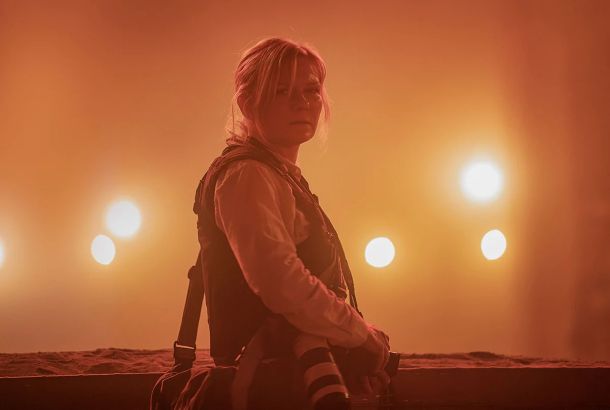Classic Review: Purple Noon
By Jake Sanders
Like a lot of the best French cinema, Purple Noon offers an exciting blend of pulpy thrills with art house touches, and it’s no surprise that Scorsese is a member of this film’s considerably cult following. Based on the Patricia Highsmith novel The Talented Mr. Ripley, Alain Delon plays Tom Ripley, a con artist with a desire for the comforts afforded to the upper class. Having been tasked with returning the rich layabout Philippe Greenleaf (Maurice Ronet) to his father, Ripley sees an opportunity to take what he wants by murdering him and stealing his identity.
It would be easier to feel bad for Greenleaf were he not such a brat, and Delon’s portrayal as Ripley is not so eerily captivating. Director René Clément and Delon present Ripley as a kind of proto-Patrick Bateman, with Delon’s fascinating beauty masking his almost comical levels of insanity. Exactly what motivates Ripley also makes him a more compelling character than if he were simply after Greenleaf’s money. Ripley seeks out for something that he can never steal or forge: a complete acceptance into the world of the bourgeoisie.
As an audience, we might be impressed by Ripley’s ability to disappear into his new persona. But we are shown, time and time again, that it will not be sufficient for him to fake his way into the world of the wealthy. One of the film’s strongest scenes involves Ripley strolling through a fish market, sampling the food, talking with the vendors, surrounded by both the working classes and the blood-and-guts reality of the world. In a later scene, we see a rich couple completely turn their noses up at a vendor who offers them a taster. Though Ripley is clearly talented and completely unfettered in his ambition it becomes increasingly clear that his quest of integrating into society’s upper echelons is a doomed one.
Clement could justifiably be criticised for sidelining Marge (Marie Laforet), the only prominent female character to simply another conquest in Ripley’s journey. Ripley’s interest in her only seems to relate to her relationship to Greenleaf and Greenleaf’s lifestyle. An earlier scene where Ripley impersonates Greenleaf before kissing a mirror is prime material for queer interpretations, but I would argue that Ripley is in love with only what Greenleaf represents—hence his general indifference to stabbing him to death. Therefore, in Ripley’s eyes, Marge is simply another means to complete his transformation into Greenleaf.
Though Purple Noon has some interesting ideas about class divides and upward mobility, it is at its most successful when it deals out simple pleasures. It is a film of uncommon beauty, with the action playing out across the canvas of the Italian coast and the central trio of Ripley, Greenleaf and Marge both looking enviably tanned and gorgeous as they lounge around in the sun. Clement clearly has a great time having it both ways; simultaneously condemning Ripley’s actions whilst allowing the audience to vicariously experience his triumphs. Murder and identity theft have never looked this good.







